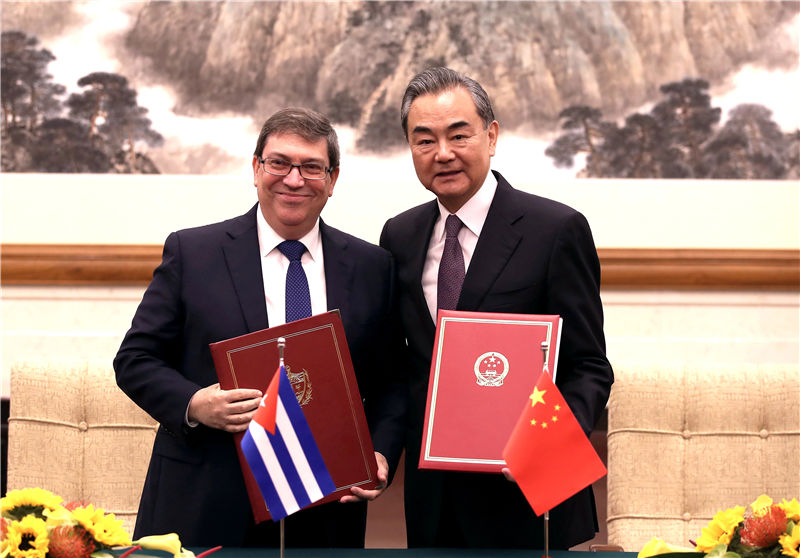China, Cuba to jointly oppose unilateralism
By ZHOU JIN | China Daily | Updated: 2019-05-30 07:16

China and Cuba agreed to join hands with other countries to oppose unilateralism and protectionism, State Councilor and Foreign Minister Wang Yi said on Wednesday in Beijing.
The two nations agreed that unilateral action and bullying have severely damaged the rule of law of the international community, Wang said.
He made the remarks when meeting with Cuban Foreign Minister Bruno Rodriguez, who is on a three-day visit to China that ends on Thursday.
Frequently imposing unilateral sanctions on other countries through "long-arm jurisdiction" is unpopular and will not endure for long, Wang said.
China will always stand with and support the Caribbean country which has endured more than half a century under sanctions and a blockade from the United States, he said.
Rodriguez echoed Wang's remarks and expressed gratitude for China's support on the international stage.
He called on the two countries to jointly uphold multilateralism and the legitimate rights of developing countries.
Cuba firmly opposes promoting a single system on the global stage and rejects violating international rules and laws that are widely obeyed, Rodriguez added.
Viewing China as an important partner in technology cooperation, Rodriguez said that Cuba is against any sanctions or discriminatory measures targeting Chinese tech enterprises.
The comment comes at a time that Chinese technology companies like Huawei are caught in the middle of trade friction between China and the US, which has strained relations between Beijing and Washington.
In response to reported claims that China is pursuing a new version of the Monroe Doctrine and seeks to control Latin America, Wang refuted such speculation as outdated Cold War thinking. The doctrine is a 19th-century strategy stating that the US would regard as an unfriendly act any attempt by a European nation to interfere in the affairs of countries in the Western Hemisphere or increase its possessions in the region.
"Reclaiming the Monroe Doctrine is against the trend of history," Wang said.
He said China's policy to develop friendly relations with Latin America is consistent and clear, as well as transparent and open.
China has no geopolitical motives when engaging in cooperation with Latin America, he said, adding that cooperation does not target or exclude any third party, nor does it affect the legitimate rights and interests of any third party.
China is Cuba's second-largest trading partner and one of its major export markets, Rodriguez said.
He said Cuba will actively participate in building the Belt and Road Initiative and advance cooperation with China in areas including trade, medical care, tourism and pharmaceuticals.
























